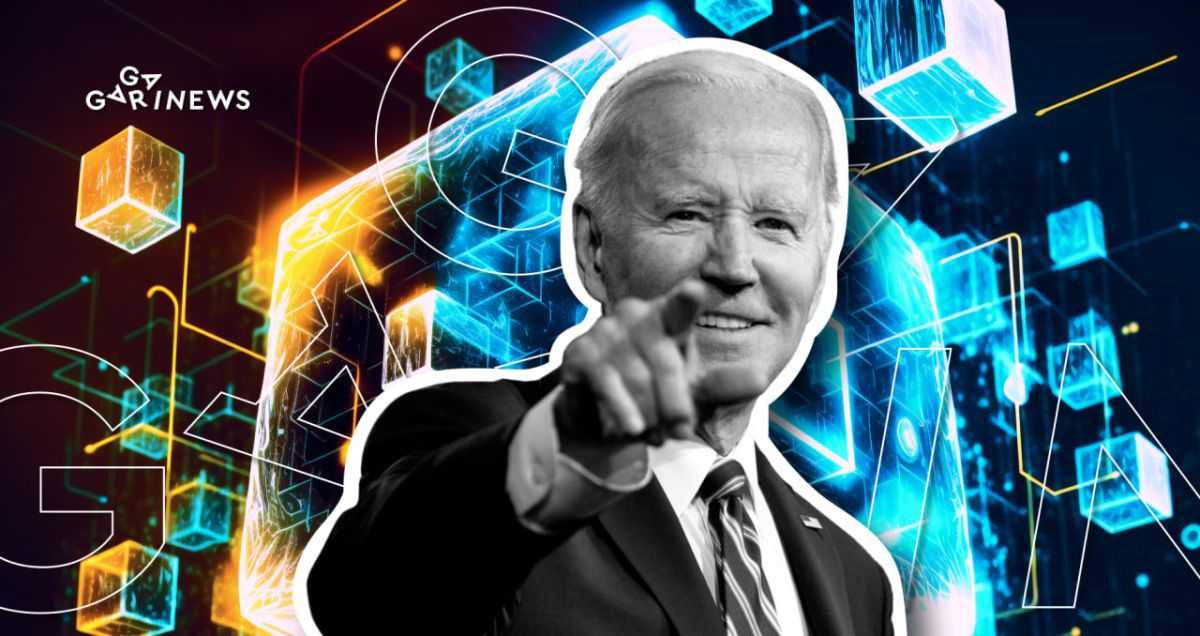Biden delivers verdict on the cryptocurrency industry

The March Economic Report has provided a clear stance on the U.S. President’s views towards cryptocurrency. According to White House experts, the verdict is unequivocal: crypto assets are only suitable for financial speculation.
On this page
- Cryptocurrencies: a potential trigger for a future financial crisis
- Understanding Cryptocurrencies: Insights from the White House
- Cryptocurrency Volatility Compared to Traditional Assets, 2017-2022
- Cryptocurrency industry risks demanding a deeper investigation
- Top 10 cryptocurrency platforms
- Grim conclusions
The “Economic Report” is an annual policy document from the U.S. President's Administration that aims to outline the White House's stance on the country's economic challenges. This year's report includes a section titled “Digital Assets: Relearning Economic Principles,” which paints a bleak picture of the crypto industry. Upon closer examination, it appears that regulatory scrutiny on the cryptocurrency sector by U.S. regulators is expected to increase in the coming months.
Cryptocurrencies: a potential trigger for a future financial crisis
The White House's report kicked off with a compelling historical overview. Economists pointed out that similar to the current cryptocurrency market, previous financial crises in the U.S. were often sparked by players who resembled the characteristics of today's cryptocurrency market participants.
For instance, the banking panic of 1907 was triggered by reckless financial policies of non-systemic trust companies. When depositors started withdrawing their money from trusts and then from banks en masse, it took the intervention of J.P. Morgan, the founder of JPMorgan Chase and Morgan Stanley, to stabilize some of the sinking banks. Morgan invested significant funds to strengthen struggling banks and convinced other bankers to do the same. However, the financial speculators were not interested in rescuing the entire banking system.
Past policymakers realized that during times of crisis, it is not enough to rely solely on individuals, but rather on robust institutions that can safeguard the interests of society. This led to the creation of the Federal Reserve System, which has been tasked with managing the monetary and credit policies of the United States ever since.
“Fast forward 100 years, and digital asset proponents are now aspiring to create a decentralized financial system without relying on governments and their regulatory frameworks, which were shaped by important lessons
learned from multiple previous crises, including the 1907 panic,” draw analogies in the White House.
Understanding Cryptocurrencies: Insights from the White House
The White House report makes it clear that despite the touted market advantages of cryptocurrencies such as decentralized storage and increased financial access, they do not actually possess these properties.
The report further explains that cryptocurrencies are, in fact, speculative investment instruments. To support this claim, the authors of the report present the volatility trends of various assets over the past 5 years as evidence.
Cryptocurrency Volatility Compared to Traditional Assets, 2017-2022
Cryptocurrencies are highly volatile, and one of the reasons behind this volatility is the lack of fundamental value compared to traditional assets like stocks, gold, or silver.
Analysts also point out that information about the absence of fundamental value in cryptocurrencies is often hidden from retail investors. This is due to prevalent fraud and non-compliance with regulatory requirements in the industry.
Conversely, unbacked crypto assets are traded without fundamental anchors, suggesting that their market prices only reflect speculative demand, or market sentiment
the White House asserts.
Cryptocurrency industry risks demanding a deeper investigation
At the same time, the report's authors acknowledge the substantial surge in trading volumes within the cryptocurrency industry in recent years. For example, the top 10 cryptocurrency platforms now trade around $91 billion daily (as of January 18, 2023).
The analysts also couldn't resist mentioning Binance, a cryptocurrency exchange, and its reluctance to provide accurate and reliable information in response to regulatory inquiries.
The Biden Administration considers the market successes of cryptocurrency exchanges as risks, although experts have not yet formed a unanimous opinion on the nature of these risks.
Top 10 cryptocurrency platforms
Grim conclusions
In the final section of the report, the authors make a predictable forecast of a looming decline in the crypto sector since cryptocurrencies:
- lack widespread economic benefits;
- are not efficient alternatives to fiat currency;
- are too risky to become widely accepted as payment instruments.
As a solution, they propose the introduction of CBDCs and the implementation of FedNow, the Federal Reserve's upcoming payment system set to launch in the summer of 2023.
Certain innovations, such as FedNow and a potential U.S. CBDC, could help bring the U.S. financial infrastructure into the digital era in a clear and simple way, without the risks or irrational exuberance brought by crypto assets
pledge officials.
However, it's too soon to jump to conclusions that cryptocurrencies will be banned in the US after this critical report. On a brighter note, the White House reluctantly acknowledges that some cryptocurrencies appear to be here to stay and will continue to pose risks to financial markets, investors, and consumers. They assure that regulatory agencies will enhance their capabilities and ultimately ensure compliance with all government regulations.
The content on The Coinomist is for informational purposes only and should not be interpreted as financial advice. While we strive to provide accurate and up-to-date information, we do not guarantee the accuracy, completeness, or reliability of any content. Neither we accept liability for any errors or omissions in the information provided or for any financial losses incurred as a result of relying on this information. Actions based on this content are at your own risk. Always do your own research and consult a professional. See our Terms, Privacy Policy, and Disclaimers for more details.



























